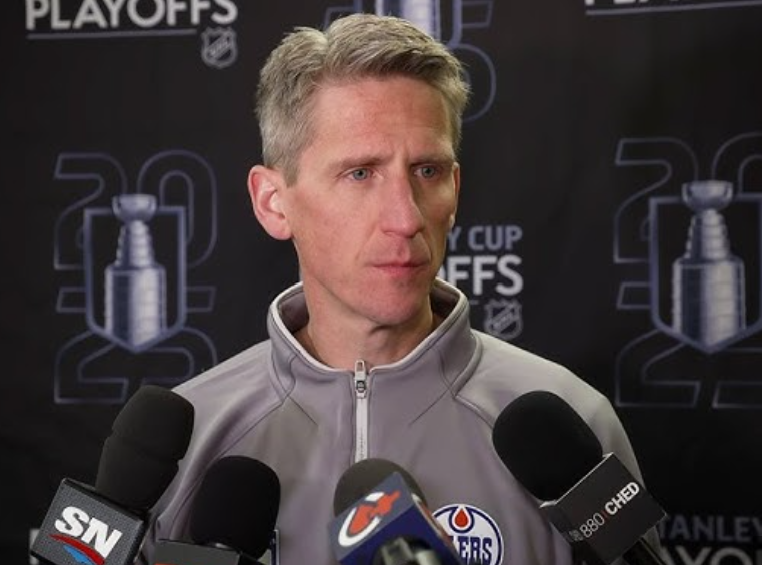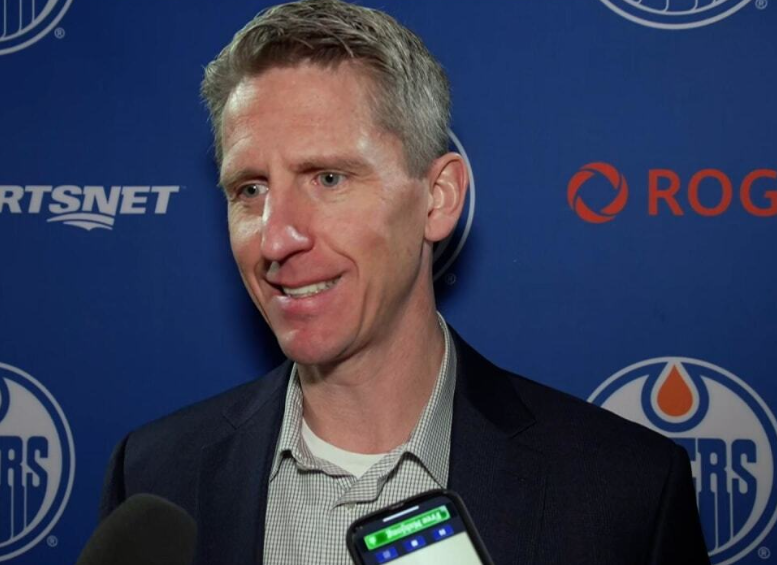The Edmonton Oilers may have secured Evan Bouchard with a new four-year, $42 million contract, but the way the deal unfolded raises concerns about his long-term future with the team. While locking up a top-tier offensive defenseman offers short-term reassurance, it might only be postponing a more serious issue.
Sportsnet’s Elliotte Friedman reported that the Oilers had to bump Bouchard’s salary to $10.5 million annually—$1 million more than initially projected—after the Carolina Hurricanes showed interest in submitting an offer sheet. To avoid losing one of the league’s premier offensive defensemen, Edmonton agreed to the higher price. While that move was arguably necessary, it could complicate future negotiations once the contract expires.
This situation is especially troubling because it suggests Bouchard may have been open to leaving. Offer sheets in the NHL only become a threat if the player is willing to sign them. Carolina’s leverage came from a credible belief that Bouchard was seriously considering it. Unlike players like Matthew Knies, who have made their loyalty clear, the urgency Edmonton showed in finalizing this deal implies Bouchard is open to testing free agency for the right offer.

This contract isn’t just about short-term security—it’s also a strategic move by Evan Bouchard’s camp. Opting for a four-year term instead of the maximum eight signals a clear intent to capitalize on the NHL’s projected salary cap increase down the road. General Manager Stan Bowman confirmed as much, admitting that a longer deal was never a serious option because the cost would have been prohibitively high for the team.
Simply put, Bouchard’s representatives weren’t just looking for fair compensation—they were aiming to retain flexibility and bargaining power.
From Edmonton’s standpoint, the move was necessary to keep their championship aspirations alive. Still, it may have long-term consequences.
Looking Ahead: What Happens in Four Years?
By the time this contract ends, Bouchard will be 28 and likely at the peak of his abilities. With the salary cap expected to rise significantly, his current $10.5 million AAV could look like a bargain. If he maintains or improves his performance, he could be in line for a contract worth $14–15 million or more annually, especially if league-wide salary trends continue upward.
Even more crucial is the precedent this deal sets. The Oilers already gave in once when faced with the threat of an offer sheet, which gives Bouchard and his camp a stronger negotiating position in the future. Unless Edmonton wins a Stanley Cup—or ideally, more than one—during this window, the pressure to justify a high salary without a title could create even more tension.
This doesn’t necessarily mean Bouchard lacks loyalty. Rather, like many players in today’s NHL, he’s making calculated decisions based on timing and earning potential. For a team like the Oilers, who need their core players to sign team-friendly deals to maintain roster depth, that approach presents a real challenge.
Ultimately, the Oilers did what they had to do to stay competitive. But given Bouchard’s willingness to explore other options once, there’s little reason to assume he won’t do it again when the stakes—and the salary cap—are even higher.




